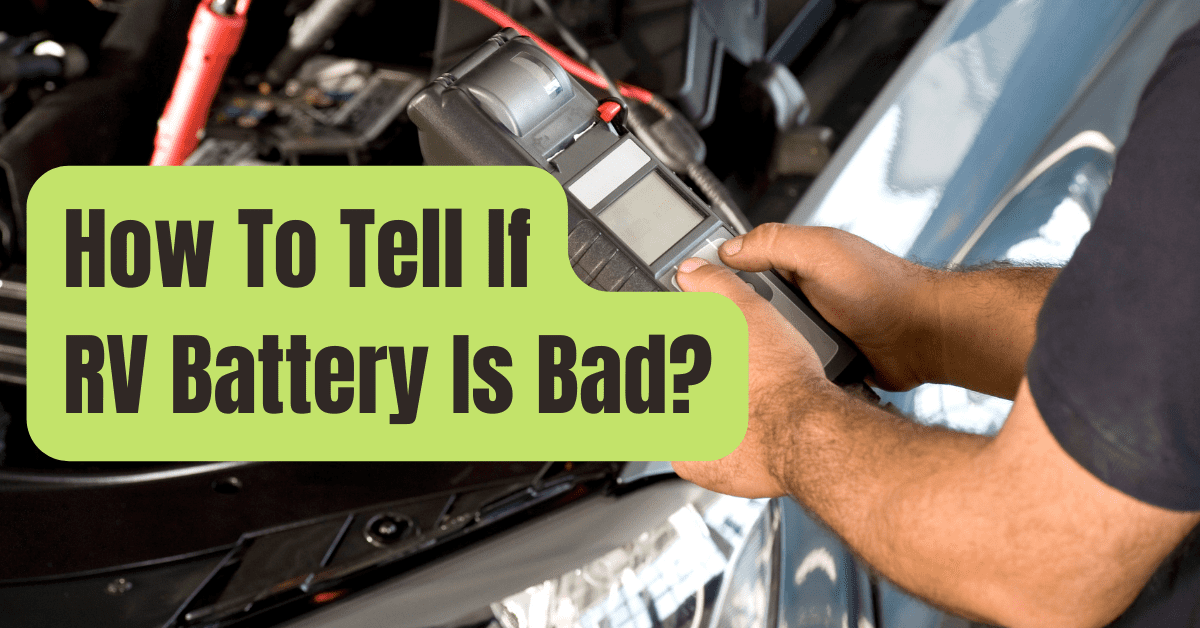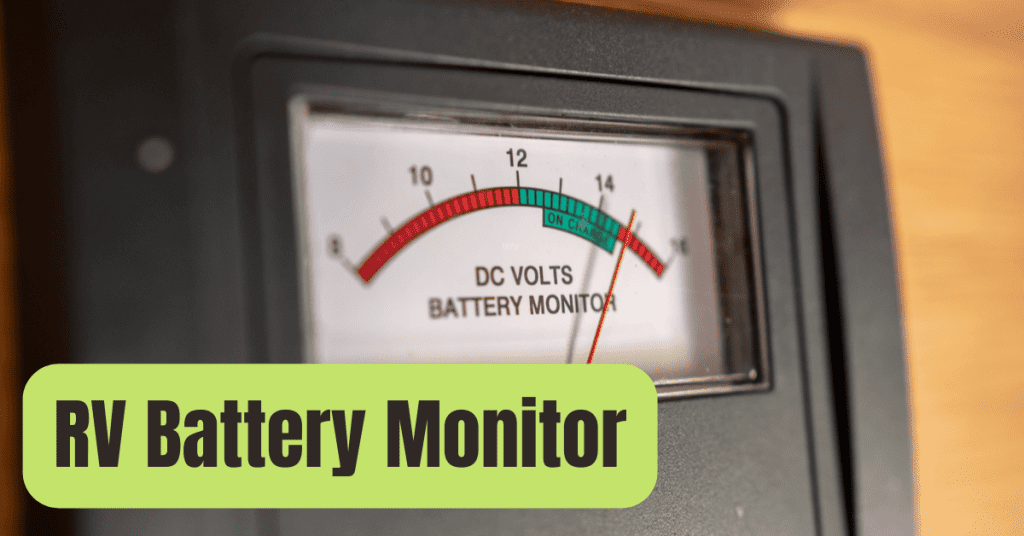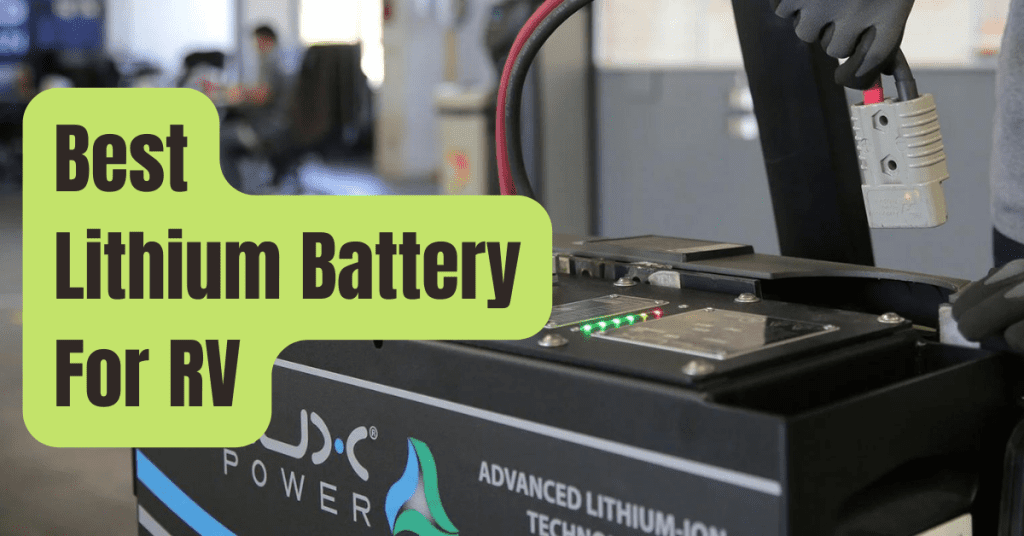The battery in your RV won’t last forever.
And as it will eventually need to be replaced,
Are you concerned and want to know whether the battery in your RV is bad?
Continue reading to find out more about the warning signals that an RV battery is failing, how to test one at home, how to increase its longevity, and how to choose the right battery for your vehicle.
Signs Of A Failing RV Battery
There is a good risk that your RV battery is already damaged or is going bad if you notice irregular performance or unable to retain a charge for an extended period of time.
And if this problem isn’t fixed, your battery will keep causing you problems, making life on the road miserable.
In order to prevent these difficulties, you should examine your battery as soon as you can to see whether it’s to blame for your RV’s power troubles.
This is simple to ascertain by checking the battery in your RV.
What indications are there that the battery is failing or has already sustained damage?
Physical damage may be used to determine if a flooded battery is poor, but sealed AGM or gel batteries cannot be tested in the same way.
For these batteries, measuring voltage is the best option.
Perform load testing on a fully charged battery to check; if the voltage decreases quickly within 30 seconds or drops to 0 V, the battery is definitely failing.
The following may be used to visually confirm it:
- Case has a bump or bulging
- Faulty terminals
- Broken or ruptured plastic casing
- Discoloration
- A lot of leakage
You are placing yourself in serious risk by utilizing the battery if the connections are damaged or loose.
They may cause the battery to short circuit or even explode, inflicting severe harm.
A bulge or hump on your RV battery is a symptom of overcharging if everything else seems to be in order.
Splits, holes, and cracks may not impair performance.
However, it would be wise to replace the battery since using it in such condition is unsafe.
At-Home Battery Testing
Your RV battery may be malfunctioning inside if you’ve physically inspected it and discovered any damage that is the root of the problem.
And only by doing several experiments will this be known.
You have two major options for evaluating your RV battery: load testing and doing a voltage test.
Power Test
Depending on your preferences, you may check the voltage of your battery with a voltmeter or multimeter.
Make sure your RV battery is completely charged before using any gadget.
You should then let it to sit for at least three to five hours once it has finished charging.
The voltage it should read at various percent levels is shown in the table below.
| % Charge | Voltage |
|---|---|
| 100 | 12.70 V |
| 90 | 12.64 V |
| 80 | 12.46 V |
| 70 | 12.36 V |
| 60 | 12.28 V |
| 50 | 12.20 V |
| 40 | 12.12 V |
| 30 | 12.04 V |
| 20 | 11.98 V |
You may use your device to test the voltage once this time period is over.
If your battery has kept its full charge, it should register between 12.7 and 13.2 volts.
It’s quite probable that your RV battery short-circuited if the gadget registers any voltage between 0 and.
If the multimeter won’t go over 10.5V, your battery is already dead and has to be replaced.
There is a good likelihood your battery is sulfated if it is completely charged yet the multimeter result is 12.4V or below.
A sulfated battery will also need replacement since it is unable to hold a full charge.
Additionally, it will discharge quicker than usual.
Test the Battery’s Capacity
The performance capabilities of your RV battery may also be determined by load testing, which is an equally efficient technique.
You have the choice of checking your battery at home or taking it to a nearby auto shop.
A digital voltmeter, similar to the one you used for the voltage test, is required if you decide to do the testing at home.
The next step is to start your RV while your voltmeter is connected to the battery’s terminals.
If your RV battery is in top shape, it should be able to sustain a load of between 9.5 and 10.5 volts for 30 seconds.
If it supports the load for a short period of time before dropping slowly, there is a problem.
As you can see, it’s simple to tell whether your RV battery is deteriorating or if it already is.
A charged battery and a testing tool like a multimeter or digital voltmeter are all you need.
It’s time to replace your RV batteries if any of the symptoms mentioned above have appeared.
How Long Ought Batteries To Last Typically?
Your RV battery should last, on average, 5 to 7 years.
The exact amount of time will, however, depend on how often you use your battery, how well you take care of it, and what kind of battery you are using in your RV.
For instance, lithium-ion batteries may survive for 5,000 charge cycles or more, but deep-cycle batteries may only last for around 500 charge cycles.
How Can I Ensure a Long-Lasting Battery?
As mentioned above, how you use and maintain your RV battery will determine how long it lasts.
Therefore, maintaining and using your battery properly will assist to increase its lifespan.
Before discussing various steps you may take to prolong an RV battery’s life, it’s important to understand what causes battery failure.
The main causes of lead acid battery failure in an RV are listed below.
- Sulfation
- Charging too much
- Below charging
- Inadequate maintenance
First of all, sulfating is a process that gradually destroys the battery.
Sulfate begins to build up on the battery’s plates as it is drained, however when the battery is recharged, the sulfate is transformed back into plates.
This is a typical procedure, but if the battery is depleted for an extended period of time, the sulfate conversion back into the plates becomes difficult and might cause battery damage.
Such a battery eventually fails because it can no longer be completely charged.
You must also fully charge the battery once it drains.
Sulfation will eventually result from undercharging over time.
Overcharging comes next.
However, the majority of current converters that guard against overcharging avoid this.
On older batteries, however, overcharging the battery may cause the electrolyte to boil over and cause battery failure.
Battery discharge may happen as a consequence of parasitic loads over time.
The battery will continue to lose charge even if these loads are ignored.
When the RV is kept in storage for an extended length of time, this often occurs.
Even when not in their full operational state, devices like CO detectors, TVs, and antennas may still use power.
Therefore, it is usually preferable to keep the battery separately and unplugged.
The switch that entirely disconnects modern battery systems from the appliances is included.
Self discharge is another matter.
Even with the battery completely unplugged, some charge will still be lost.
It is always advised to check the battery and recharge it if necessary, especially during storage since it may be as high as 10% every month.
Here are some pointers to prolong the life of your RV battery.
Carry Out Regular Upkeep And Maintenance
Your RV battery’s lifespan may be increased by charging it as soon as you can and doing periodic maintenance.
Avoid letting your RV battery drop below 12 volts if at all feasible.
Long-term discharge of your battery might result in sulfation, which can ultimately irreversibly damage it.
Limit Your Exposure to Extreme Weather
Both very hot and below-freezing temperatures may damage your battery and reduce its lifetime.
For instance, very high temperatures might lower the capacity of your battery by around 50%.
In other words, it will force your battery to work harder, ultimately destroying it.
Additionally, high temperatures might cause your battery to swell or even explode.
In contrast, colder temperatures can cause your batteries to lose power more quickly, lowering the number of times they can be charged.
In certain cases, lithium-ion batteries that are exposed to very low temperatures may even cease charging.
As a result, you should always make sure your battery is stored somewhere that isn’t too hot or cold.
Turn Off Any Parasitic Loads
Your RV battery will eventually deplete due to devices like clocks, TV antenna power boosters, appliance circuit boards, and LP gas leak detectors.
Additionally, since they deplete your RV battery more quickly, you will need to recharge it more often, which will eventually result in fewer charge cycles.
Therefore, if you are not using your RV, be sure to disconnect all the essential systems and appliances.
Decide To Use A Portable Refrigerator
When kept running all day, an 8-cubic-foot refrigerator will typically use 600 watts of electricity.
Furthermore, as you can see, this is a substantial amount of power.
Instead, you might use a portable generator to reduce this power usage.
Because portable generators have built-in batteries, they don’t need your RV’s battery to operate.
The lifespan of your RV batteries will be substantially increased by using this kind of refrigerator.
Use The Chassis Batteries To Charge Smaller Devices
It is recommended to use the 12-volt USB ports powered by the chassis batteries to charge smaller devices like tablets, watches, telephones, compatible laptops, and cameras rather than turning on the inverter.
As you are undoubtedly aware, the inverter must power itself before converting the DC electricity from the battery to AC and distributing it to all of the outlets in the RV.
Your RV batteries will suffer a significant amount of power loss as a result.
There is no purpose in turning on the large inverter since the power drain from the chassis batteries will be minimal.
For A Limited Time, Use A Generator To Power Large Consumers
If you often use electric frying pans, a microwave, or a griddle, you may want to think about using the generator to power them rather than the RV batteries.
These gadgets can quickly deplete your RV’s battery, even if you just use them for 30 minutes or so.
Therefore, if you want to travel for many months, you should think about packing a generator so that you may use it to power these large consumers.
The Ideal Battery For An Rv
RV batteries come in a variety of varieties.
Each battery also has advantages and disadvantages.
The two most common types of RV batteries are lithium and deep-cycle batteries.
Let’s examine each battery type in more detail:
Long-Life Batteries
A lead-acid battery is essentially what a deep-cycle battery is.
It’s comparable to the one seen in boats and golf carts.
Just like a vehicle battery, it functions.
A deep-cycle battery, however, will provide a consistent level of power over a longer time period than a vehicle battery.
On the other hand, car batteries provide a lot of power in a little amount of time.
Deep cycle batteries come in a variety of forms, including gel-type batteries, flooded wet-cell batteries, and absorbed glass mat or AGM batteries.
They come in a variety of sizes, with the bigger ones having a stronger output than the smaller ones.
Battery Types: Lithium-ion
Lithium-ion batteries are often used in phones, computers, tablets, and other battery-operated portable devices.
In comparison to lead-acid deep-cycle batteries, lithium-ion batteries are more recent, lighter, smaller, and more compact.
In addition, they need less maintenance than lead-acid batteries.
Lithium-ion batteries may also be fully discharged without the cells being harmed.
However, deep-cycle RV batteries are less costly than lithium-ion RV batteries, as you would anticipate.
The ideal battery for an RV will rely on your demands for power usage, your financial situation, and your personal tastes.
For instance, a deep-cycle battery will be perfect for your needs if your budget is short.
However, if you have some more cash, you should get a large lithium-ion battery.
Final Reflections
An essential part of the interior construction of your motorhome or travel trailer is the RV battery.
It will run all the electrical appliances in your RV, enhancing the comfort of your vehicle.
Therefore, you must always make sure that your RV battery is in excellent operating order.
Once it begins to malfunction, it must be replaced and recycled.










